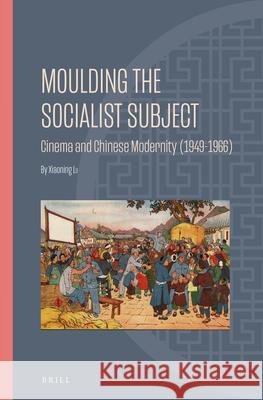Moulding the Socialist Subject: Cinema and Chinese Modernity (1949-1966) » książka
Moulding the Socialist Subject: Cinema and Chinese Modernity (1949-1966)
ISBN-13: 9789004423510 / Angielski / Twarda / 2020 / 200 str.
What role did cinema play in the Chinese Communist Party’s political project of shaping ideal socialist citizens in the early People’s Republic? In Moulding the Socialist Subject, Xiaoning Lu deploys case studies from popular film genres, movie star culture and rural film exhibition practices to argue that Chinese cinema in 1949–1966, at once an important political instrument, an enjoyable yet instructive form of entertainment, and a specific manifestation of the socialist society of the spectacle, was an everyday site where the moulding of the new socialist person unfolded. While painting a broad picture of Chinese socialist cinema, Lu credits the human agency of film professionals, whose self-reflexivity and individual adaptability played an intrinsic role in the Party’s political project.











